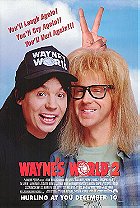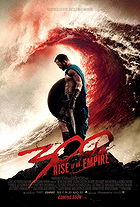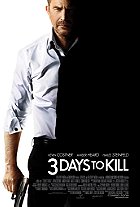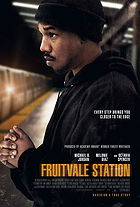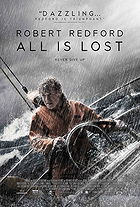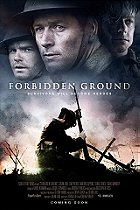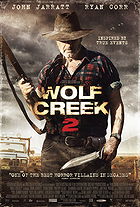1996's The Phantom is another comic book adaptation which has never quite gotten a fair shake. It was produced for a rather extravagant $45 million, yet opened to poor reviews and apocalyptic box office, killing Paramount's plans for a franchise. Although the flick has performed respectably on the home video market and has amassed something of a cult following, it nevertheless deserves more attention and respect. The Phantom is pure, unpretentious matinee fun, retaining the spirit of its source to produce an old-fashioned, Indiana Jones-esque action-adventure suitable for kids and adults alike. It's not high art, but its light-hearted disposition makes it a perfectly enjoyable B-movie extravaganza. The Phantom is actually part of a trifecta of '30s-set comic book adventure movies from the 1990s which flopped, following The Rocketeer and The Shadow. They make for a smart triple feature.

For centuries, the titular Phantom has haunted the Bengalla woods, and is known to the natives as "the ghost who walks" since he never seems to die. However, he is not immortal; a new Phantom steps in to take up the mantle when their predecessor is too old or too dead to carry on. Kit Walker (Billy Zane) is the latest incarnation of the Phantom, inheriting the responsibilities from his late father. In New York, shady businessman Xander Drax (Treat Williams) is determined to obtain the fabled Skulls of Touganda, a trio of ancient artefacts that, when brought together, will give great power to those that possess them. Upon learning of Drax's intentions, Kit springs into action, and in his travels meets beautiful former flame Diana Palmer (Kristy Swanson). Kit also realises that Drax is working with the evil Sengh brotherhood, an age-old enemy of the Phantom who were responsible for the murder of Kit's father.
As with Tim Burton's Batman, The Phantom eschews an in-depth origins tale, instead only briskly revealing the hero's genesis before finding Kit firmly set in his ways. The screenplay by Jeffrey Boam (who also wrote Indiana Jones and the Last Crusade) instead drip-feeds anecdotes about the history of The Phantom, which is all that's necessary in the grand scheme of things. Reportedly, the film was initially intended to be a parody of the popular The Phantom comic strip, but this idea was abandoned with the departure of original director Joe Dante. When new director Simon Wincer came on-board, he decided to retain Boam's original script, but play it straight, and it's this approach which gives the movie its charm. See, whereas the whole enterprise is humorous and goofy, Wincer creates a grounded old-fashioned adventure with cool stunts and action scenes. Thus, The Phantom never takes itself too seriously, but it also never devolves into some moronic mockery of the source. It's a silly but sincere endeavour, and it works.

Roger Ebert described The Phantom as one of the best-looking movies he has ever seen, and this is indeed a valid observation, as the picture is visually fantastic. In an age of heavy digital tampering, it's refreshing to see a flick like this which looks real rather than hyper-real, and carries a gorgeous cinematic texture that is rarely seen anymore. Relying on stunt-work and big sets, The Phantom is a wonderful relic of yesteryear, and its special effects still stand up today (some rocky green screen work notwithstanding). The director was Simon Wincer, an Australian who also oversaw the likes of The Lighthorsemen. There's an obvious affection for Steven Spielberg in Wincer's direction, and, especially with the period setting, various scenes could be mistaken for an Indiana Jones film. Wincer nails the pulp adventure serial vibe, and the movie is filled out with a number of action set-pieces which are clichéd but stylish and engaging.
Two actors were in serious negotiations to play Kit Walker/The Phantom for this movie: Zane, and Evil Dead star Bruce Campbell. Although it might have been fun to see Campbell in the role, Zane was ultimately the right choice, showing that he had what it takes to be a fun action hero. Zane was a huge fan of the character and embraced the chance to play him, working extremely hard to buff himself up. A suit was actually made with rubber muscles in pre-production, but Zane did not need it when the cameras began to roll. Sure, the material is hammy and the costume looks ridiculous, but Zane is spot-on, emerging as one of the film's biggest assets. (Zane's performance won him a role in James Cameron's Titanic, which has to count for something.) As the token love interest, Swanson shows plenty of spunk, while Catherine Zeta-Jones is an agreeable pick for the exotic bad girl. Also excellent is Treat Williams (Deep Rising), clearly relishing the opportunity to play a cartoonish bad guy. Rather than sinister and evil, Williams' Drax seems genuinely giddy about his master plan, and looks to be having a blast as he carries out his villainous machinations. Williams has always been an underrated performer, and his talents are visible all over the screen here.

In the 21st Century, The Phantom is note-worthy due to how fun it is - today's superhero movies are often dour affairs concerned with "gritty realism," but this movie is bright and colourful, with a tongue-in-cheek disposition. Indeed, the enterprise is not meant to be taken too seriously, as it's a pure cheese sandwich which moves at a rollicking pace. You call it kitsch, I call it entertainment. And the fact that the planned franchise never materialised is another grave injustice which makes this reviewer quite glum indeed.
6.9/10
 Login
Login
 Home
Home 183 Lists
183 Lists 1674 Reviews
1674 Reviews Collections
Collections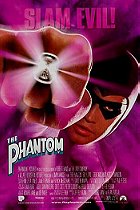
 0 comments,
0 comments, 